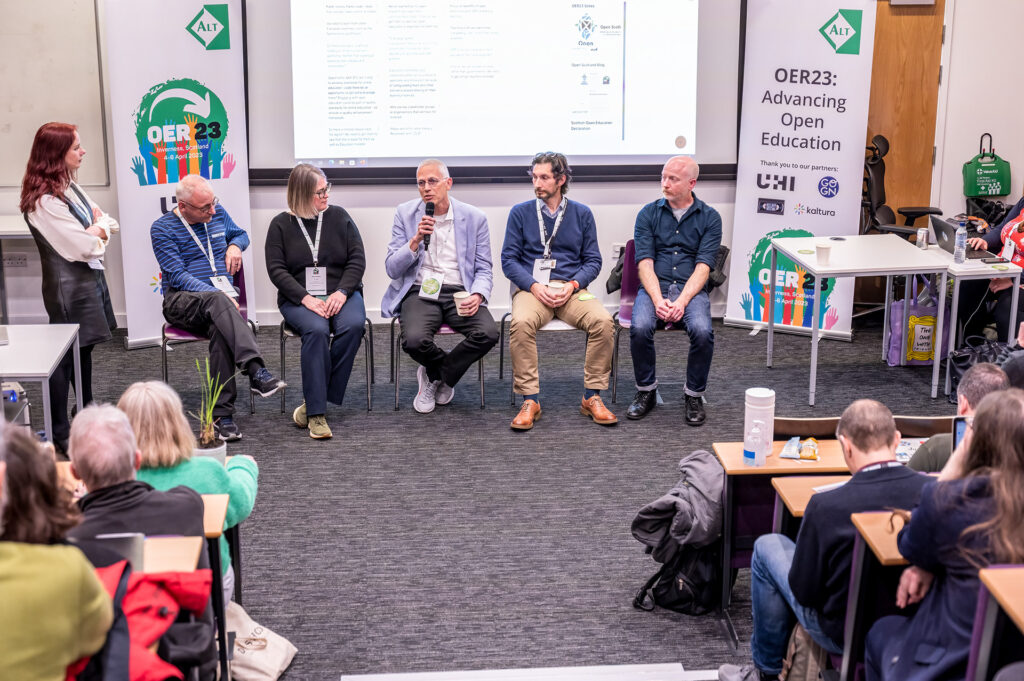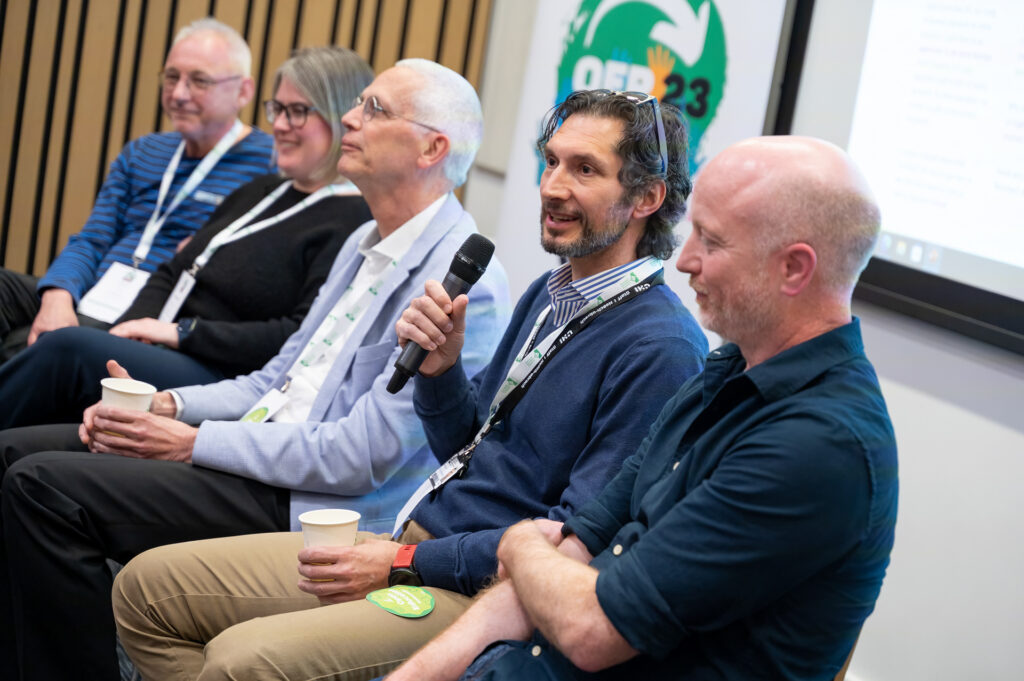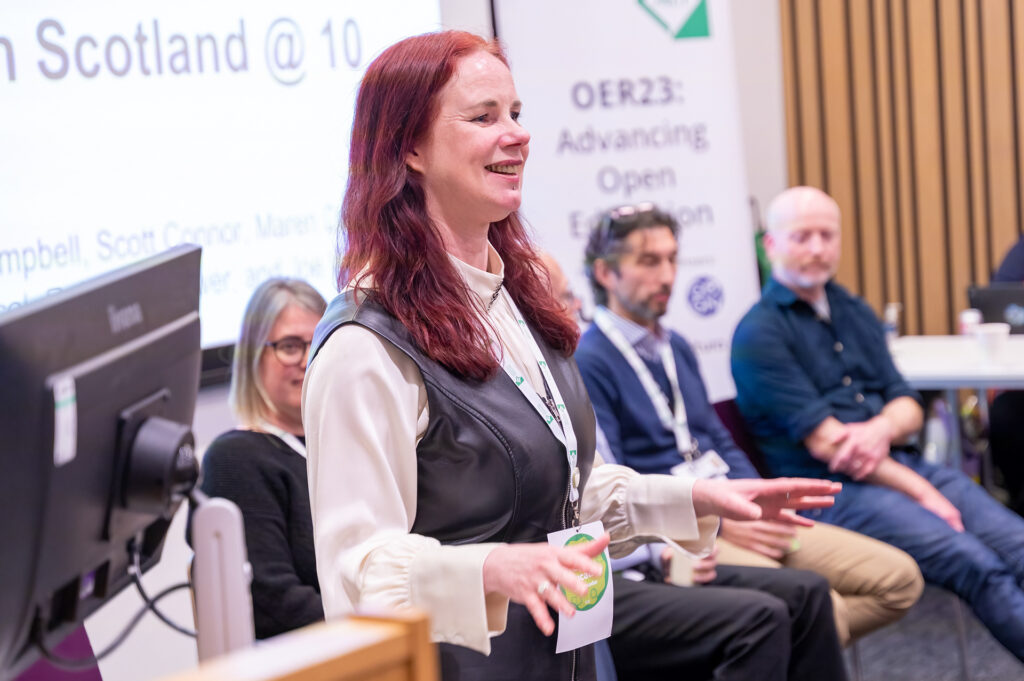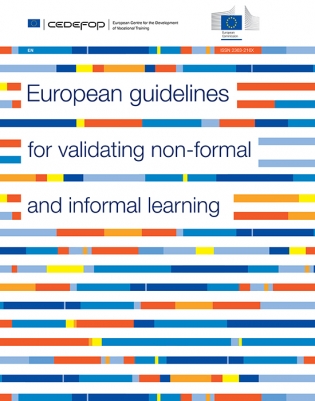The 3rd UNESCO World OER Congress took place in Dubai last week. The previous two congresses, held in Paris in 2012, and Ljubljana in 2017, resulted in the Paris OER Declaration and the Ljubljana OER Action Plan, which was the forerunner of the 2019 UNESCO Recommendation on OER. The output of the 3rd OER Congress is the Draft Dubai Declaration on OER.
The theme of the Dubai congress was “Digital Public Goods: Open Solutions and AI for Inclusive Access to Knowledge”. Digital public goods (DPG) are defined by the UN’s Roadmap for Digital Cooperation, as
“open-source software, open data, open AI models, open standards and open content that adhere to privacy and other applicable laws and best practices, do no harm, and help attain the sustainable digital goals (SDGs)”.
In this context open education resources are regarded as digital public goods that “support the enrichment of the global knowledge commons”.
In addition to the Sustainable Development Goals, the UNESCO Recommendation on OER, and the Road Map for Digital Cooperation, the Dubai Declaration also references Commitment 7 of Our Common Agenda: to “Improve digital cooperation”.
Key themes of the Declaration are harnessing the opportunities afforded by emerging technologies such as AI and blockchain to create new OER, curate and index existing OER, translate OER, and “ensure the provenance, integrity, and lawful use of OER”.
The Declaration outlines Recommendations in five areas (paraphrased from the draft):
Capacity Building
- Support professional development for educators, content creators and those working on Gen AI projects, on copyright (inc. exceptions and limitations) and open licensing, to understand challenges posed by emerging technologies and ensure sharing and collaboration that respect copyright laws.
- Promote digital literacy for users and developers to engage in the responsible creation and use of emerging technologies for OER.
- Develop technologies such as cryptographic signing, semantic interoperability, and machine learning to improve attribution and discoverability of OER. E.g. Embedding metadata into OER, identifier generation standards, author-identity credentials, time-stamping mechanisms and signing OER packages.
- Prioritise digitally signed works for OER repositories, and their use in the training open AI models.
- Implement strategies grounded in human rights that are open, accessible, multistakeholder and gender inclusive to ensure respect for user generated data, metadata, privacy and attend to ethical practices and respect copyright rules.
Policy
- Policy environments should focus on the protection and verifiability of authorship of OER and other Digital Public Goods.
- Open licensing should be incorporated into the Terms of Use of AI applications specifying that it is only to be used by humans to generate openly licensed content.
- Support embedding licensing information of training content in the output generated by AI tools. When open licensed materials are used to train AI models, the resulting generated content should be made available under compatible open licenses, and attribution to the copyright owner(s) of the training materials should be reflected in the generated content.
- Encourage and support research into next generation attribution systems to enable tracing the use and re-use of OER.
Ensuring inclusive and equitable access to quality OER
- Support the development of AI-enabled OER that is accessible in low-bandwidth scenarios and designed to enhance the accessibility of vulnerable groups.
- Include cryptographic signing into quality criteria for the production of OER. Emphasise the connection of signatures to real-world identity of authors – to create incentives for publication and counter misinformation.
- Support the translation and contextualisation of OER with the participation of different user communities.
- Encourage the engagement of diverse participants in communities of open practice.
Sustainability Models for OER
- Support approaches IPR protection & OER development driven by the ROAM-X principles of human rights, openness, accessibility, and multi-stakeholder participation.
- Promote sustainable environmental approaches for digital public goods to minimise energy consumption and reduce the carbon footprint, recognising when the use of AI-tools is not necessary or appropriate.
- Practice participatory governance, active transparency, public reporting and regular audits for the complete OER ecosystem (including technological, legal, and pedagogical aspects) to build trust among stakeholders.
- Prioritise public infrastructure and public-private partnerships, while also supporting private initiatives for OER using emerging technologies, that adhere to the principles of digital public goods and openness.
International cooperation
- Promote human centred use of emerging technologies, including AI, for the implementation of the UNESCO Recommendation on OER
- Engage with the open community and legal experts on open licensing and IP law to ensure that emerging technologies adhere to legal terms and address the demands of diverse stakeholders.
- Develop ethical frameworks and new technologies to promote OER, including more effective identification of provenance and tracking using AI-based techniques.
- Encourage OER repositories and content source to implement policies that prioritize digitally signed works, and define how they may be processed and used, including criteria for the training of AI models.
- Develop AI platforms to create and OER adhering to the UNESCO Recommendation on OER.
A few thoughts
As with previous congresses, there were no representatives present from UK government ministries, education authorities, or institutions. While this is disappointing, we do hope that the new Declaration will prompt the education sector in Scotland to reconsider the benefits and affordances of open educational resources. It was the Paris OER Declaration that originally inspired the development of the Scottish Open Education Declaration, and Joe Wilson and I were fortunate to attend the 2nd World Congress in Ljubljana to represent Open Scotland. Though we had limited success persuading the Scottish Government of the benefits of supporting OER, the Scottish Open Education Declaration did prove to have some influence further from home, particularly in Morocco, where it informed the development of a similar initiative. I was pleased to see that Morocco were active participants in the Dubai Congress where they highlighted their “national OER and Open Science strategy that aims to modernise education and expand research accessibility, driven by strong engagement from educators.” (Latifa bint Mohammed inaugurates 3rd UNESCO World OER Congress in Dubai.)
I’m very encouraged that the Dubai Declaration highlights the importance of developing digital skills and copyright literacy to ensure everyone is able to understand the impact of AI and emerging technologies. Supporting digital skills development is one of the cornerstones of the University of Edinburgh’s OER Policy and OER Service. This approach helps to empower staff and students to develop the skills and confidence to make informed decisions about creating and using open educational resources and open licensed content.
I’m also pleased that the Declaration recognises the importance of supporting diverse communities of open practice, though I do feel that supporting open practice should underpin all the recommendations of the Declaration.
I’m a bit surprised by the prioritisaton of digital signatures and cryptographic technologies and I’m alarmed by the recommendation that signatures should connect to authors’ real-world identities. While this approach does have the potential to address issues relating to attribution and verification, and to combat misinformation, it’s also potentially ripe for abuse.
It’s interesting that embedding metadata in open content and tracking OER have reappeared. Both are great ideas, but neither are straightforward to implement. Part of the problem is that open educational resources are such a diverse class of things and, by their very nature, they are scattered all over the internet. I can’t help feeling that many of these recommendations pre-suppose that OERs exist in curated repositories. While some do, the vast majority don’t, and never will. Semantic search services have long been seen as the key to enable cross searching and discovery of heterogenous resources distributed across the web, but I’m not sure how much progress has been made towards making this a reality.
While I’m not surprised that the Declaration focuses on the affordances and challenges of generative AI and emerging technologies, I am concerned that it rather glosses over the many problematic ethical issues, including algorithmic bias, exploitative and extractive labour practices, and environmental impact. The Declaration does reference the ROAM-X principles, sustainable environmental approaches and highlights the importance of recognising when the use of AI-tools is not necessary or appropriate, but I feel it could have gone a lot further. I would like to have seen some acknowledgement of the risks of rapidly embracing these new technologies, risks that are not evenly distributed across the globe, and to focus instead on human centred approaches to achieve the aims of the UNESCO Recommendation on OER and the Sustainable Development Goals.
Resources





